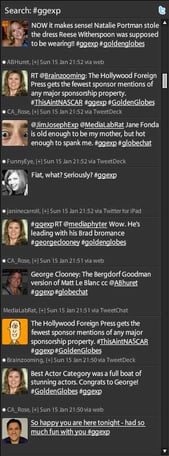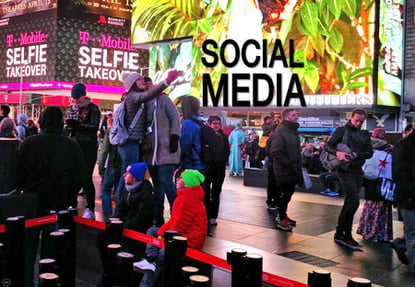Last Wednesday, I attended the Kansas City Business Marketing Association lunch for a presentation by Ashley Kuhnmuench of Google on the "B2B Buyer at Zero Moment of Truth." It's a Google-defined characterization of what happens before a customer comes in direct contact with your brand. Since it's Google doing defining ZMOT (as it's acronymed), it's pretty much seen as the online research a prospect does on your brand before interacting with you. This brief video from the presentation features a further description of the concept:
While it's an intriguing characterization, the concept isn't necessarily innovative (people have always been able to reach out to others for perspectives or do offline research on a brand - yes there was research before Google existed).
Ashley did offer some statistics, however, which support the increasing prevalence of pre-engagement searches among business decision makers. She reported:
- 62% of B2B buyers are doing more online research because of the economic downturn and have become more likely to switch vendors.
- Google is seeing a surge in B2B conversions, with conversion defined as an individual taking a desired action on a website.
In successfully dealing with the Zero Moment of Truth, Ashley suggested three strategies for brands to embrace:
- Visibility - Business decision makers are using longer searches (4 to 7 words), seeking out specific information. They're also using time outside normal work hours for business-related searches: 40% of business decision makers spend non-9 to 5 time doing online searches for work. Increasingly mobile devices are also part of the search equation. Visibility implies online presences being legitimately active 24/7 (i.e., having someone available to respond to social-media based requests or crises for your brand in what used to be off-hours), easily findable (SEO, SEM), functioning across multiple platforms, and incorporating video (for richer and more personal explanations of features and benefits).
- Persuasion - B2B searchers are increasingly looking for productivity, efficiency, and sustainability-related messages. So not only does the online presence you actively manage need to reflect searcher interests and your brand in a relevant way, you have to make sure you live up to customer expectations and your brand promise to best impact broader conversations taking place online. With the advent of social media and social networking, it's become very challenging for brands to manage online messages and the sentiment about their brands when there's every opportunity for the public to communicate completely contradictory messages. That means brands have to be active in relevant forums with believable, authentic messages and interactions to foster strong relationships.
- Flexibility - Finally, flexibility implies a brand's ability to anticipate and respond quickly to opportunities and challenges. It also demands a willingness to launch new ideas rapidly with less attachment to perfection, and great skill in iterating to arrive at increasingly better answers.
The most important point in the presentation centered on this: the presence of online information and dialogue about brands (and related topics) has already fundamentally changed and disrupted numerous industries, including travel, publishing, retail, and real estate. If you think it won't affect your business-oriented market, you're wrong, and you need to start anticipating the potential ramifications and responding immediately. – Mike Brown
The Brainzooming Group helps make smart organizations more successful by rapidly expanding their strategic options and creating innovative plans they can efficiently implement. Email us at brainzooming@gmail.com or call us at 816-509-5320 to learn how we can help you enhance your brand strategy and implementation efforts.



